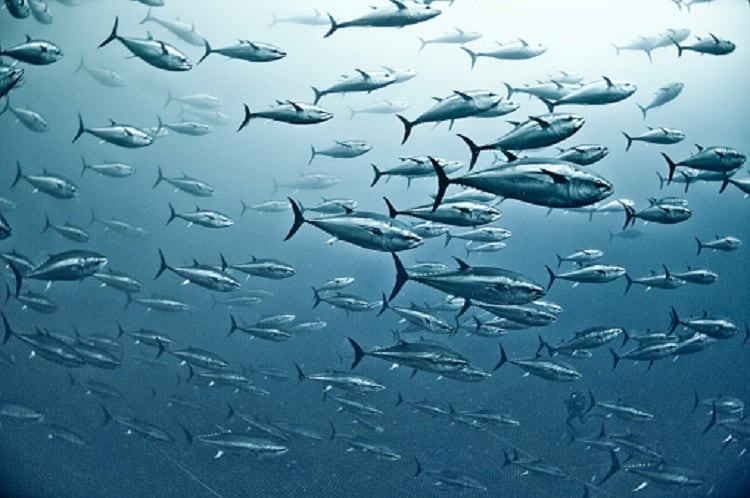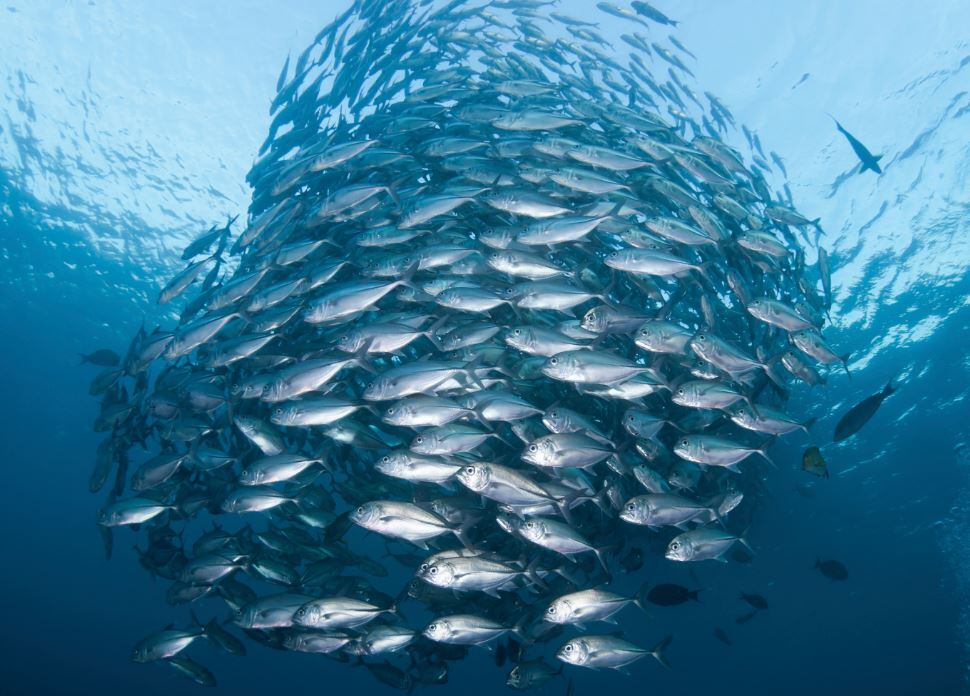The study, conducted by Spanish marine-focused technology centre Azti, investigated the effect of environmental conditions on the global distribution and abundance of six tuna species between 1958 and 2004.
The expected end-of-century changes – based on a high greenhouse gas concentration scenario – was also analysed, alongside species distribution models, to make future predictions.
The research forms part of the Climate Impacts on Oceanic Top Predators (IMBER-CLIOTOP) programme and will be published in the Global Change Biology journal next month.
“During the historical period analysed, the habitat distribution limits of the tuna have moved towards the poles at a rate of 6.5 km per decade in the northern hemisphere and 5.5 km per decade in the southern one," said sustainable fisheries management expert and study co-author Hartiz Arrizabalaga.
“Based on the influence of climate change, even strong changes in tuna distribution and abundance are expected in the future, particularly at the end of the century (2088-2099).”
More specifically, findings revealed that as water temperatures increase, four tuna varieties will reduce their presence in tropical waters and migrate towards colder waters. These include albacore, Atlantic Bluefin tuna, bigeye tuna and southern Bluefin tuna.
However, two tropical tuna species examined – the skipjack and yellowfin tuna – are expected to increase in population under marine global warming scenarios.
It is also envisaged these species will thrive in the fishing areas of coastal countries up to 200 nautical miles from land.
“The habitat for these tropical fish species is predicted to improve due to climate change. They will remain in the tropics and even expand their latitudinal ranges around the equator,” Arrizabalaga told FoodNavigator.
"Tuna species are resources of enormous economic importance and a key source of protein for much of the population. As a result of climate change, their habitat distribution is changing and, related to this, the opportunities of different countries to access this source of wealth.
“This study aims to explain what has happened in the past and predict what will happen in the future, so that countries and fishing fleets can come up with adaptation strategies to the new circumstances" – study co-author Maite Erauskin-Extramiana.This redistribution will have a “likely positive impact” on the canned fish industry, Arrizabalaga continued.
“Five million tonnes of tuna are caught every year. Skipjack tuna and yellowfin tuna represent 85% of it and are used mostly for canning. This canning industry provides tuna products worldwide.”
These predictions offer relatively good news for the tuna fishing and canning industries alike.
“Even today, most tuna is caught in the high seas and supplied internationally, and this will most likely continue to be the case,” Arrizabalaga explained.
“Locally, some countries are expected to see different species of tuna visiting their waters, and this might offer some new opportunities to diversity some products based on local tuna.”
Climate change and our oceans
Overall, global warming – whereby the overall temperature of the earth’s atmosphere gradually increases due to increased levels of carbon dioxide, CFCs and other pollutants – present an enormous threat to the planet and its oceans.
It is likely to be greatest cause of species extinctions this century, according to the World Wildlife Fund (WWF).
Significant changes in temperature have already been observed in oceans, which so far have increased by 1°C. Critical thresholds are expected to be reached at 1.5°C and above.
“Coral reefs are projected to decline by a further 70-90% at 1.5°C. At a warming of 2°C virtually all coral reefs will be lost. It’s not only a tragedy for wildlife: around half a billion people rely on fish from coral reefs as their main source of protein,” state the WWF.
Source: Global Change Biology
‘Large-scale distribution of tuna species in a warming ocean’
First published: 25 March 2019
DOI: https://doi.org/10.1111/gcb.14630
Authors: Maite Erauskin-Extramiana, Hartiz Arrizabalaga, Alistair J Hobday, Anna Cabré, Leire Ibaibarriaga, Igor Arregui, Hilario Murua, Chillem Chust





